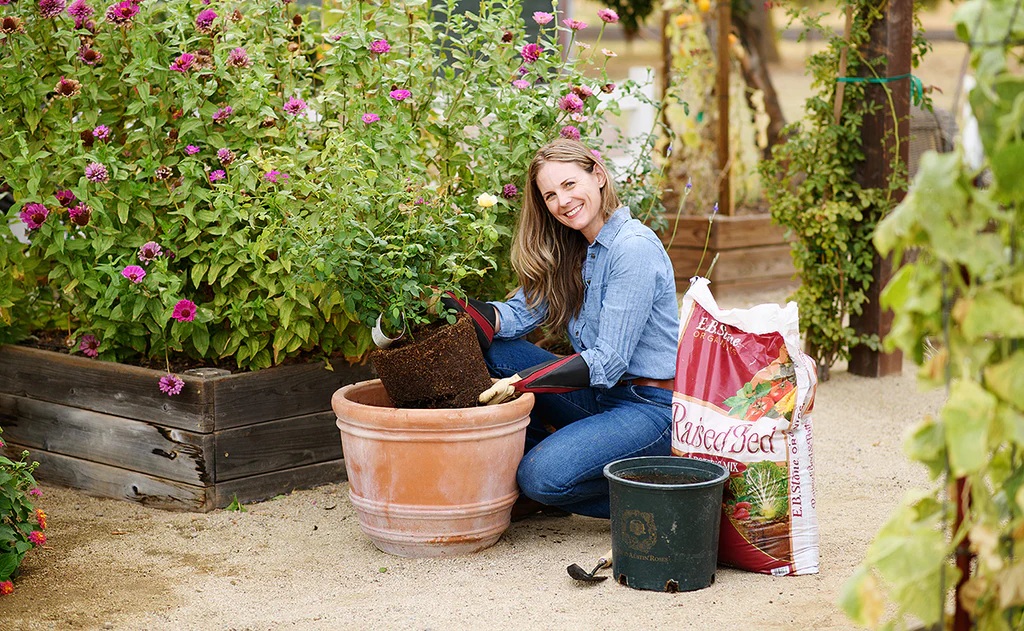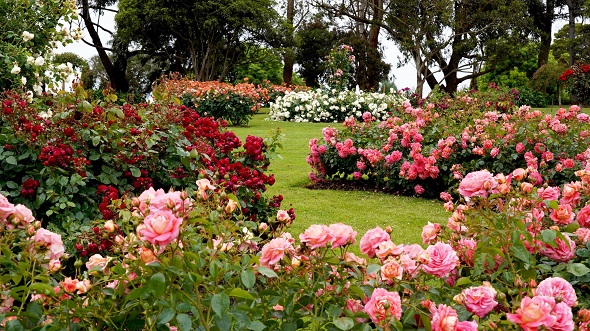If your heart is set on growing roses at home. Then make sure to plan in advance. Some roses have more perfume than others. So if scent is a major consideration choose your rose type carefully.
Garden roses tend to emit a strong and memorable perfume. Whereas hothouse roses tend to vary from a mild fragrance to having almost none.
You can always visit rose gardens that are open to the public to give you some inspiration as to the type and colour for your garden.
Planting at home
When preparing a bed for your roses. Select a sunny position as roses require at least six to eight hours of daylight a day.
They require a well-drained soil with plenty of organic compost. In hot climates roses survive better when they are protected from the hot afternoon sun.

When to plant
It is best to plant roses in the spring after the last frost, or in the fall at least six weeks before the first frost in your area.
This will give the roots plenty of time to burrow into the soil before they become dormant in the winter.
How to plant roses
The plant requires a hole to be deep enough and wide enough. So it can accommodate the plants roots and allow for good drainage as roses don’t like wet feet.
It is a good idea to add a good mix of garden compost, peat moss with the soil that has been removed from the hole.
Put some of this mixed soil in the bottom of the hole and plant your rose. Ensure the plants crown is at ground level in mild climates and 2-3 inches below ground level in cold climates.
Fill the hole with the partially with the soil mixture and add a slow release fertilizer. Water thoroughly then finish filling the hole.
Water again then mound loose soil around the canes as it acclimatizes to is’ new site.
If you are planning on planting more than one rose bush, space them at least 3 feet apart to give them room to grow and mature.
Fertilize your roses
It is important to fertilize roses regularly, if you wish to have an impressive display of flowers.
Slow release fertilizers have the right amount of nitrogen, phosphorous, potassium and other nutrients that give the roses the nourishment that they need for optimum growth.
Watering roses
Roses do best when the soil moisture is kept even throughout the growing season. How often you water will be determined on the weather.
Where you live and the type of soil in which the roses are planted.
Rose varieties
There is a myriad of rose colours and varieties to select from. There is a large range of flower forms and sizes. From tiny single to full double blowsy blooms.
Choosing a rose requires research if you want to get the right rose for your situation.
If you have a particular roses that you like and wish to plant only that one. Then check with your local nursery to see if they have what you want. Growing roses at home can be a great hobby.

